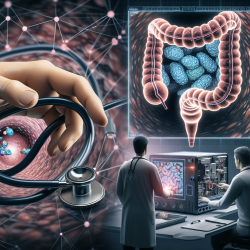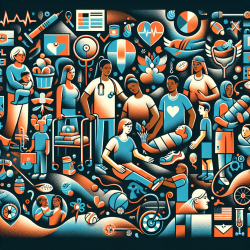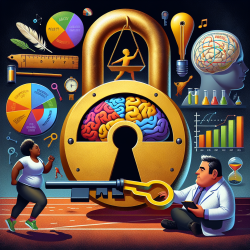The field of gastroenterology is witnessing a transformative shift with the integration of deep learning technologies in colonoscopy procedures. Colorectal cancer (CRC) remains a significant health challenge globally, being one of the most common cancers with a high mortality rate. Early detection through effective screening methods like colonoscopy is crucial in reducing CRC-related deaths. Recent research, such as the study titled "Colonoscopy polyp detection and classification: Dataset creation and comparative evaluations," offers promising advancements in this area.
The Role of Deep Learning in Polyp Detection
Deep learning, particularly through Convolutional Neural Networks (CNNs), has shown significant potential in enhancing the accuracy and efficiency of polyp detection during colonoscopies. The research highlights the creation of a comprehensive endoscopic dataset annotated by experienced gastroenterologists. This dataset serves as a benchmark for training and evaluating machine learning models specifically designed for polyp classification.
The study compares eight state-of-the-art deep learning-based object detection models, demonstrating that these models hold promise for improving CRC screening outcomes. The findings suggest that CNN models can significantly aid in real-time polyp detection and classification during colonoscopy procedures.
Key Findings and Implications for Practice
- High Sensitivity and Specificity: The research underscores the importance of sensitivity and specificity in screening tests. Deep learning models have shown high sensitivity rates, crucial for ensuring lesions are not missed during screenings.
- Real-Time Assistance: The integration of deep CNN models allows for real-time assistance during colonoscopies, helping gastroenterologists focus on regions where lesions are likely present, thus reducing human error due to fatigue or oversight.
- Improved Training and Standardization: The dataset developed can standardize training for medical professionals, enhancing their ability to detect polyps accurately.
Encouraging Further Research
This study serves as a baseline for future research in polyp detection and classification. It highlights the need for larger datasets to fully exploit the potential of deep learning models. Researchers are encouraged to build upon this work to develop more specialized CNN models tailored to medical applications.
The availability of standardized datasets plays a critical role in advancing computer-aided diagnosis tools. By contributing to this growing body of research, practitioners can help refine these technologies, ultimately leading to improved clinical outcomes and reduced CRC mortality rates.
Practical Steps for Practitioners
- Stay Informed: Keep abreast of the latest developments in deep learning applications within gastroenterology by attending conferences and webinars.
- Collaborate with Researchers: Engage with academic institutions or technology companies working on developing AI tools for medical applications.
- Implement Pilot Programs: Consider integrating AI-based tools into clinical practice on a trial basis to evaluate their effectiveness and gather feedback from practitioners.
The integration of AI into healthcare is not just about adopting new technologies but also about enhancing existing practices to provide better patient care. By leveraging the insights from this research, practitioners can play a pivotal role in transforming CRC screening processes.
To read the original research paper, please follow this link: Colonoscopy polyp detection and classification: Dataset creation and comparative evaluations.










